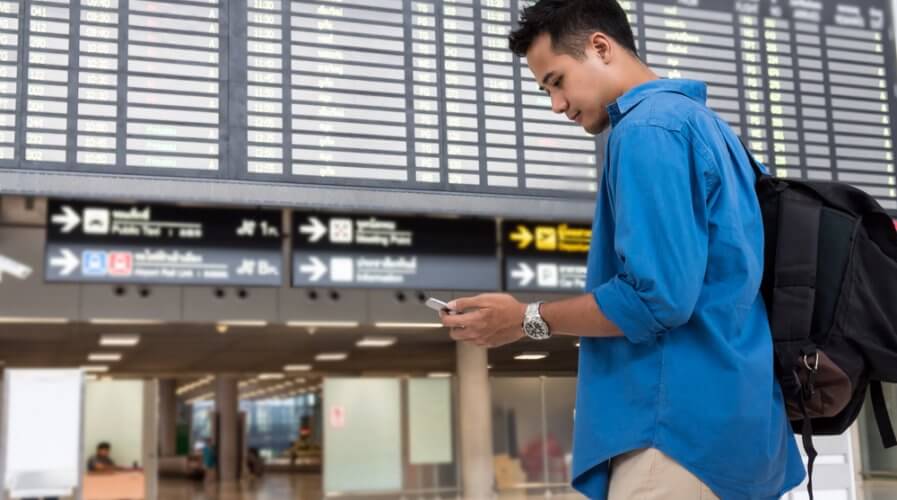
UK’s regulators have spoke, but will APAC regulators set up rules to make online travel bookings fair? Source: Shutterstock
Why regulators should rein in online travel booking platforms
BOOKING a holiday online is now easier than ever before. Travel booking platforms list the best hotels, offer the biggest discounts, and often allow customers to book now and pay later.
Technology truly has transformed the industry for the better and turned the tables in favor of the customers. At least, that’s what online travel booking platforms would like us to believe.
In reality, experts suggest, platform operators are simply using technology to boost revenues and profits.
Intelligent algorithms and marketing tactics make customers believe they’re getting great value for money. But the truth is, although technology has made life easier for travelers, customers don’t always get the value they’re promised.
UK’s Competition and Markets Authority (CMA) looked into this last year and called out platforms (such as Expedia, Booking.com, Agoda, Hotels.com, ebookers and trivago) that were using unfair marketing tactics and gimmics — and issued a strict warning against such practices.
More recently, the CMA announced that some of the biggest online hotel booking sites have made a formal commitment to change their ways.
Here are the particulars of what has been agreed to in the UK:
# 1 | Search results
Platform owners agreed to explain to customers how hotels are ranked after they enter their search requirements.
For example, they’re going to be informing people if and when search results have been affected by commissions paid to them by the hotels they list.
# 2 | Pressure selling
Customers tend to take the bait when told that time is running out, rooms are scarce, and a lot of other people are looking to book the same room at the price they’re seeing.
The CMA frowns upon such pressure tactics and hence, travel platform operaors have agreed to avoid giving a false impression of the availability or popularity of a hotel or rushing customers into making a booking decision based on incomplete information.
For example, when highlighting that other customers are looking at the same hotel as you, making it clear they may be searching for different dates.
The CMA also saw examples of some sites strategically placing sold out hotels within search results to put pressure on people to book more quickly. Sites have now committed not to do this.
# 3 | Discount claims
Being clearer about discounts and only promoting deals that are actually available at that time.
Examples of misleading discount claims may include comparisons with a higher price that was not relevant to the customer’s search criteria.
For example, some sites were comparing a higher weekend room rate with a weekday rate or comparing the price of a luxury suite with a standard room.
# 4 | Hidden charges
Often, customers complain about seeing a deal that’s too good to be true, comparing it to prices from other apps or platforms, and making a decision to book — only to realize that there are hidden charges that weren’t disclosed upfront.
As a result of the CMA’s interference, travel platform operators will now display all compulsory charges such as taxes, booking or resort fees in the headline price — in the UK.
Sites can still break that price down, but the total amount the customer has to pay should always be shown upfront.
What about customers outside the UK?
According to figures provided by Statista (for 2019), the online travel booking market in the UK is only worth US$19.37 billion and has only 20.4 million users.
In comparison, the Asian market has 358.5 million users and is worth US$137.87 billion. If you add Australia to the mix, you can add another 6.4 million users and another US$5.43 billion in revenues.
Unfortunately, unlike in the UK, regulators in the APAC don’t seem to be keen on reining in online travel booking platforms.
To some extent, intense competition in the APAC online travel market makes unfair pricing a little difficult, but it’s still something that regulators in this part of the world need to look into.
Of course, the UK — or any other country in the world for that matter — hasn’t created strict laws about this, but regulators are watching, and that is enough (for now) to compel platforms to play fair and do right by the customer.
READ MORE
- Strategies for Democratizing GenAI
- The criticality of endpoint management in cybersecurity and operations
- Ethical AI: The renewed importance of safeguarding data and customer privacy in Generative AI applications
- How Japan balances AI-driven opportunities with cybersecurity needs
- Deploying SASE: Benchmarking your approach




